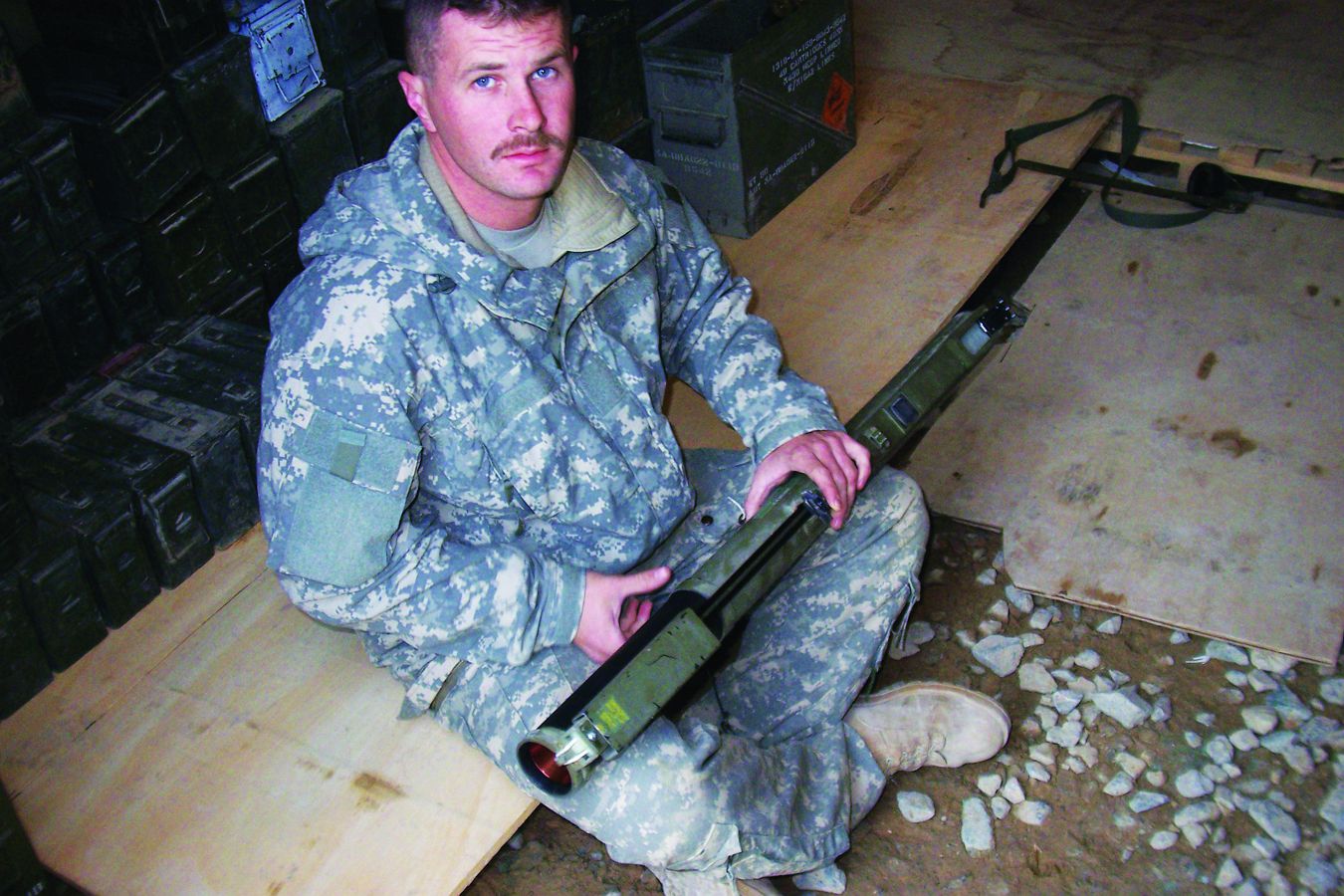Hugh Parry (MBA ’09) took a break from the MBA program to do the worst job in the world.
To be fair, patrolling the rugged, remote Panjwai Distict of Afghanistan may not be the world’s worst job, but you’d be hard pressed to find a more difficult job, or a more dangerous one.
“It was an interesting experience,” says Parry, who returned from his year-long deployment with the Army National Guard in June 2009. “I haven’t done anything in my life that’s been that challenging or that scary or that frustrating, but if I had to pick between a regular army deployment and Afghanistan, I would choose Afghanistan. It was a legendary deployment.”

Hugh Parry (MBA '09) spent a year in Afghanistan as part of a National Guard team supporting the local police force. Here, Parry prepares to give a class on using the M72 anti-tank rocket launcher
In April 2008, Parry was sent to Panjwai, Kandahar, as part of Operation Enduring Freedom. Parry served as the executive officer of a Police Mentor Team, overseeing 13 soldiers charged with assisting the Afghan police in combating the drug trade and fighting insurgents in the hostile region known as birthplace of the Taliban. As the only U.S. personnel in the vast district, Parry and his team helped the police establish law and order in a lawless environment.
“Part of it is like building an airplane while it’s in flight,” Parry says of the assignment. “You’re trying to train, equip and field a viable police force in a non-permissive environment that’s never really had a police force. You have to fight the U.S., Afghan and international bureaucracies and do it while fighting the Taliban. It’s like the Wild West times 10.”
A native of Metairie, La., Parry graduated from LSU in 2003 with a degree in economics and French and joined the Chicago office of PriceWaterhouseCooopers as a tax associate. After two years in Chicago, Parry relocated to Dallas to join Merrill Lynch’s Private Client Group. All the while, however, he continued to train with the National Guard, which he’d joined in college. He eventually completed Officer Candidate School and had planned to go full time with Special Forces when he met his wife, Brooke, and decided that grad school would be the better choice for family life, but he knew he’d be heading to Afghanistan regardless of the decision.
The Afghanistan that Parry encountered was both encouraging and frustrating. Parry says the war against the Taliban is winable, and that most Afghans love Americans. At the same time, accomplishing anything in Afghanistan is a challenge.
“Everything in Afghanistan is exponentially more complex than you think it is,” says Parry. “There’s a phrase called TIA—‘This is Afghanistan’. Guys will look at each other and say TIA because everything is different and it doesn’t make any sense. It’s like a different universe.”
Some of Parry’s experiences in Afghanistan could have come straight out of a movie. After meeting with friendly village elders on a patrol, Parry received word that Coalition Forces had received credible intelligence indicating that his patrol was about to be ambushed. Informants in the village had notified the Taliban that the Americans were there, and insurgents had positioned themselves to fire rockets at the patrol as soon as they left the village.
Not wanting to tip off the informants that air support was on the way, Parry prolonged the visit, spending two nerve-racking hours chatting innocently with villagers, playing marbles with children and trying to act like nothing was out of the ordinary.
Helicopters eventually arrived, but the insurgents disappeared into the village before they could be attacked. Parry never found out who among the villagers were the informants.
Was he ever scared?
“Constantly,” Parry says. “Every day you wake up and have no idea what’s going to happen. You’re always on edge. Something’s going to blow up. There’s going to be a fire fight. There’s going to be something. It wears on you.”
While Parry would like to stay in New Orleans following his graduation in December, he says he may end up drawing on his military experience to work with private contractors doing logistics in other non-permissive environments.
“Those jobs are out there and it’s not rocket science, they just need somebody to go and do it,” Parry says. “That would be high paying, easy to do and relatively safe.
“Relative to Afghanistan, that is,” he adds. “It doesn’t get much worse than Afghanistan.”

